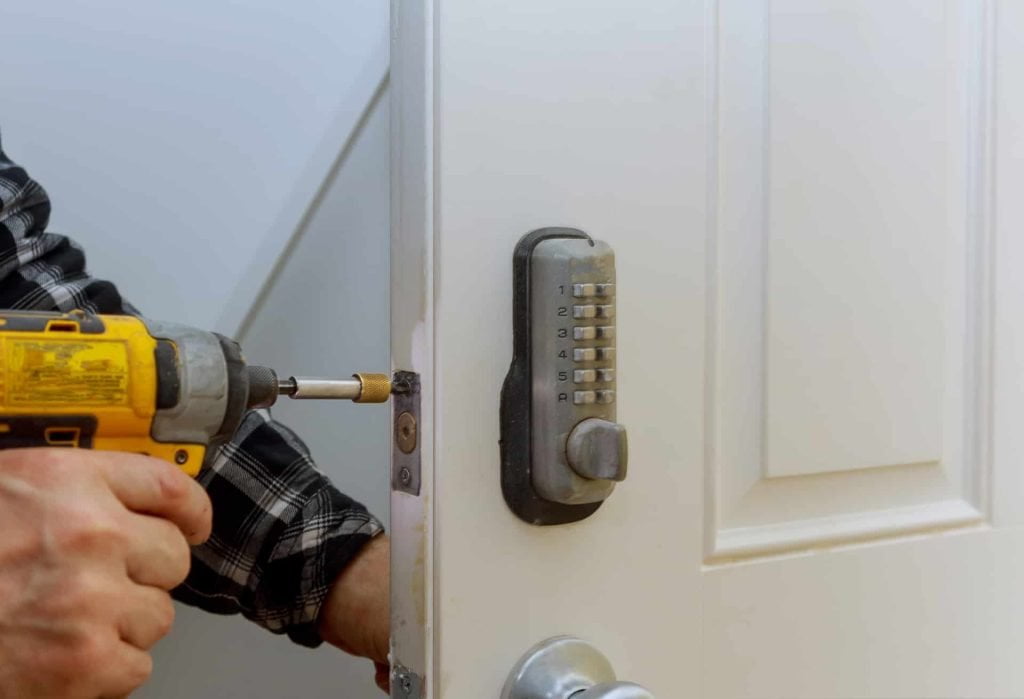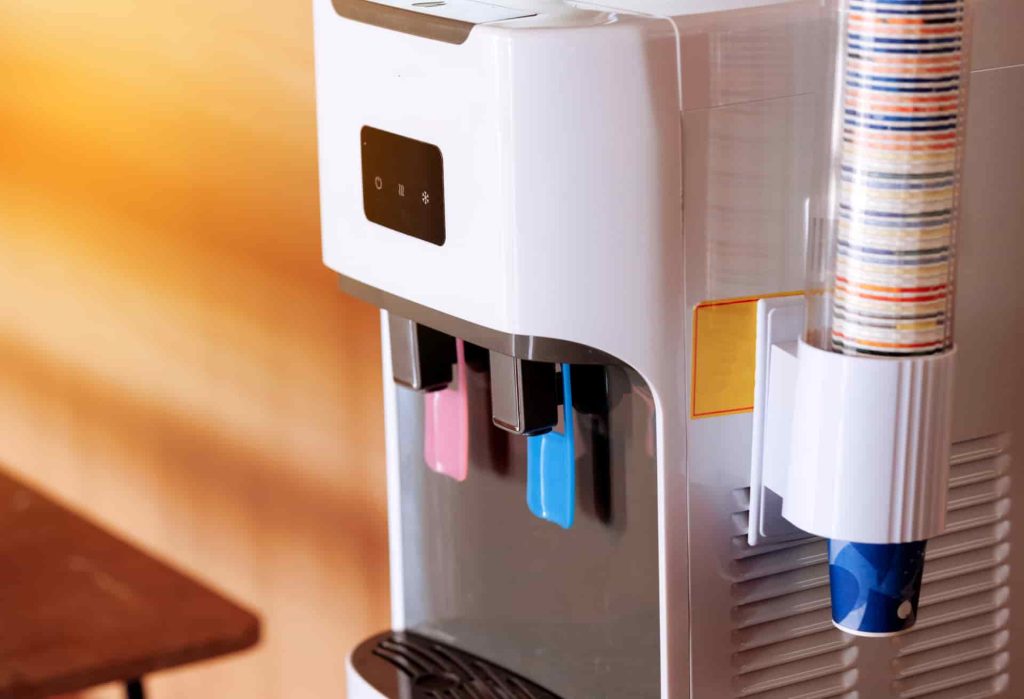
If you’re like me, moving to this bustling city and living in Berlin was both exhilarating and daunting.
Have you ever wondered how to navigate the maze of securing necessary amenities in a new city? Well, you’re not alone.
Berlin, with its unique blend of modernity and tradition, can be a challenge to newcomers trying to quickly set up their life.
Oh trust me, I was quite lost when I first stepped foot in here. It drove me quite over the edge. But once you get a hold of the city’s systems, things work out pretty quickly. As someone who has walked in your shoes, I’m here to share my experience and advice.
Whether it’s finding the perfect apartment in Prenzlauer Berg or Kreuzberg, understanding the public transportation system, or setting up your utilities without speaking fluent German, I’ve got you covered.
Let’s quickly go through my eight essential tips to secure your amenities efficiently when living in Berlin.
Living in Berlin and Securing Amenities Quickly

When I first arrived in Berlin, I quickly realized that the housing market here was unlike any other. Berlin is a city of contrasts, where trendy, modern apartments coexist with charming, historical buildings.
The demand for housing is high, especially in popular neighborhoods like Mitte, Friedrichshain, and Charlottenburg.
Now, this does mess with your ability to find an apartment quickly, but exploring is part of the fun.
One thing I learned while living in Berlin is that patience is key. It might take some time to find a place that ticks all your boxes, so don’t rush into the first option you see. Also, be prepared for the competition. In Berlin, it’s not uncommon to attend a viewing with dozens of other potential renters.
Tips on Securing Your Ideal Home
- Research Neighborhoods: Each Kiez (neighborhood) in Berlin has its own unique vibe. Spend some time exploring different areas to see what suits you best.
- Online Portals: Websites like ImmobilienScout24, Urban Ground and WG-Gesucht are great for apartment hunting. They offer a wide range of options and filters to narrow down your search.
- Documents Ready: Have all your documents (ID, proof of income, SCHUFA) ready to go. This will make you a more attractive candidate to landlords. With Urban Ground, you can get an apartment without the hassle of getting a SCHUFA. At least, that’s one thing off your list.
- Understand the Lease: Leases in Berlin can be tricky. Make sure to understand all the terms and conditions before signing. If needed, seek help from a local friend or a professional.
You need to check this out: Simple and Fool-Proof Ways to Manage Homesickness as an Expat in Germany
6 Best Tips for Securing Amenities Quickly When Living in Berlin
Securing amenities is probably a bigger hassle than actually moving abroad. You are left alone to your devices and you need to navigate the big, scary, new place all by yourself. Here are a few of my life-saving tips to help you find your way around when living in Berlin without being in hysterics in your first week there.
#1 Setting up utilities is truly a learning curve.
It was only when I settled into my first apartment while living in Berlin that I realized that setting up utilities was a crucial step to make it feel like home. In Berlin, utilities like electricity, gas, and water are not usually included in the rent, so it’s something you need to arrange independently.
Basic Amenities You Need to Look Out For
Electricity and Gas: The city offers a plethora of providers. I found it helpful to use comparison websites like Verivox or Check24, where you can compare prices and find the best deals. Remember, switching providers can often save you money, so don’t hesitate to shop around.

Water: Luckily, water is simpler. In most cases, the water supply is managed by the landlord or the building management, and the cost is included in your Nebenkosten (additional costs) with the rent. Just make sure to check your rental agreement for details.
Tips For Reading and Managing Your Housing Contract
- Managing Contracts: Contracts for utilities can be daunting, especially if your German isn’t fluent. Here’s what worked for me:
- Read the Fine Print: Understand the terms, especially regarding contract duration and cancellation policies.
- Set Reminders: For contract renewal or cancellation deadlines.
- Ask for Help: Don’t hesitate to seek assistance from a German-speaking friend or a professional service for translation and understanding the contract details.
Make sure to read: Pursuing Higher Education in Germany: Best Scholarships to Look Out For
#2 Public transportation is pretty easy to navigate once you understand its intricacies.
The city boasts an extensive and efficient network of buses, trams, U-Bahn (subway), and S-Bahn (suburban trains), making it a vital aspect of daily life.
At first, the system seemed daunting, but I soon appreciated its precision and reach. The U-Bahn and S-Bahn are the quickest ways to traverse long distances, while buses and trams are great for more local trips. Don’t forget the iconic yellow trams – they are not just charming, but extremely useful!
When living in Berlin, getting a transportation pass is truly a game-changer. The AB ticket covers most of the city, but if you’re traveling further, consider the ABC ticket. Passes can be purchased at any station, online, or through the BVG app. I found the monthly pass economical and convenient.
Tips for Smooth Transit
Here are a few tips to make sure that your journey is simple and hassle-free.
Download the BVG App:
The Berliner Verkehrsbetriebe (BVG) app is an essential tool for navigating Berlin’s public transportation system. This user-friendly app simplifies route planning and ticket purchases, making it an indispensable companion for residents and visitors alike.
With the BVG app, you can quickly find the best routes using buses, trams, U-Bahn (subway), and S-Bahn (suburban trains). It offers real-time updates on departures, delays, and disruptions, ensuring you always have the latest information at your fingertips.
The app also allows you to purchase tickets digitally, which can be more convenient and often cheaper than buying paper tickets. This feature is particularly useful for tourists who might not be familiar with the local ticketing system.
Stay Informed:
Berlin’s public transport system can be affected by various factors like weather conditions, especially during winter, or during strikes. To avoid unexpected delays or disruptions, it’s crucial to stay informed about service updates.
The BVG app and other local news sources provide timely information on any changes in the transport services. During winters, services might be slower due to snow or ice, and during strikes, some lines might be completely shut down.
Being aware of these updates helps in planning your travel accordingly and avoiding inconvenience.
Explore Bike Options:
Berlin is renowned for being a bike-friendly city with extensive bike lanes and traffic laws that prioritize cyclists’ safety. For short distances or on sunny days, consider using one of the many bike-sharing services available in the city.
These services offer a convenient, healthy, and environmentally friendly way to explore Berlin. They are often more flexible than public transport and can be a quicker option for short trips. Most bike-sharing services have apps that show the location of nearby bikes and allow for easy payment and bike unlocking.
Cycling in Berlin is not only a practical mode of transportation but also an enjoyable way to experience the city’s vibrant streets and parks.
#3 Setting up your network and communication services needs to be on the top of your to-do list.
Berlin is home to several major providers like Deutsche Telekom, Vodafone, and 1&1, each offering various plans and speeds. I learned that the key is to match the plan with your usage.
Are you a heavy streamer or a casual web surfer? Websites like Check24 are great for comparing different providers and packages, helping you find the best deal.
The choice here depends largely on your call and data needs. Providers like O2, Telekom, and Vodafone offer a range of plans, but don’t overlook smaller operators like Aldi Talk or Lycamobile for more budget-friendly options.
Securing the Best Deal
- Promotions and Bundles: When choosing internet and mobile service providers in Berlin, it’s wise to look out for promotions and bundles, particularly if you’re a new customer. Many providers offer attractive packages that combine both internet and mobile services, often at a discounted rate compared to purchasing them separately. These bundles can include perks like higher data limits, faster internet speeds, or even free add-ons like streaming service subscriptions.
- Contract Flexibility: Contract flexibility is an important aspect to consider when choosing a service provider. Some companies offer contracts with shorter durations, which can be beneficial if you are not planning a long-term stay or prefer not to commit to a long-term agreement. Additionally, providers that offer easy cancellation policies provide an added layer of convenience, allowing you to switch services without facing hefty penalties. This flexibility is particularly valuable in a dynamic city like Berlin, where your living situation or needs might change.
- Customer Service: Good customer support can be a lifesaver, especially if you’re not fluent in German.In Berlin, where a significant portion of the population might not be fluent in German, having access to good customer service in English or other languages can be immensely helpful. Providers with a reputation for excellent customer support can significantly ease the process of troubleshooting, setting up services, or dealing with billing issues. Look for companies that offer support through various channels like phone, email, online chat, or even in-person at their retail locations. Some providers might also have dedicated support for non-German speakers.

#4 Make sure to do your own research about healthcare access and providers.
Securing healthcare while living in Berlin was one of my top priorities upon arrival. The German healthcare system is renowned for its efficiency, but navigating it initially seemed like a daunting task, especially as an expat.
The first step is to get health insurance – it’s mandatory in Germany. You can choose between public (GKV) and private (PKV) health insurance, depending on your employment status and income. Once insured, you receive a health insurance card (Gesundheitskarte), which you present at doctor’s appointments.
Many doctors in Berlin speak English, easing the communication barrier. Also, don’t hesitate to ask for recommendations in expat communities or forums – they can be incredibly helpful.
In case of emergencies, dial 112. For non-emergency medical advice, you can call 116 117. It’s also wise to familiarize yourself with the nearest Krankenhaus (hospital) to your residence. The numbers remain the same regardless of whether or not you are living in Berlin.
Don’t forget to check out: Top 10 Places to Visit in Frankfurt to Truly Understand the City
Tips to Manage Your Healthcare in Germany
- Keep Documents Handy: It’s crucial to always carry your health insurance card in Berlin, as it’s often required for any medical services or appointments. The card contains essential information about your insurance coverage and can expedite administrative processes at clinics or hospitals. Additionally, keeping a list of any medications you’re taking, including their dosages and frequency, can be incredibly important, especially in emergency situations. This list can also assist your doctor in understanding your medical history and in prescribing the right medications, avoiding potential drug interactions.
- Understand Referrals: In the German healthcare system, seeing a specialist usually requires a referral from a general practitioner (GP). This system is designed to ensure that patients receive appropriate care and to avoid unnecessary specialist visits. Your GP will assess your condition and refer you to a specialist if needed. Understanding this process is vital as it might be different from other healthcare systems, and it ensures you follow the correct procedures to get the care you need.
- Pharmacies (Apotheken): Pharmacies in Berlin, indicated by a green “A” sign, are your go-to places for both prescription and over-the-counter medications. They are widely available and staffed by knowledgeable pharmacists who can provide advice on medication usage and potential side effects. In addition to medicines, pharmacies often stock a variety of health-related products and can be a valuable resource for medical advice. Most pharmacists speak English, which can be helpful for expatriates or tourists.
#5 When setting up your banking and financial services, ask for help as much as possible.
When I moved to Berlin, getting my banking and financial services sorted was a key step to fully settling in. Here’s how I navigated this important aspect while living in Berlin:
Opening a Bank Account:
- Choose the Right Bank: When selecting a bank in Berlin, it’s important to weigh your options between traditional banks, such as Deutsche Bank and Commerzbank, and digital banks like N26 or Revolut. Traditional banks offer a wide range of services with physical branches you can visit for in-person assistance. They are often preferred for more complex banking needs like loans or mortgages. On the other hand, digital banks offer the convenience of handling all your banking needs online or via a mobile app, often with lower fees and more flexible account options.
- Necessary Documents: To open a bank account in Berlin, you typically need to provide a passport, proof of address (Anmeldebestätigung), and in some cases, your residence permit. This documentation helps the bank verify your identity and address in Germany. Some banks may have additional requirements, so it’s advisable to check with the specific bank beforehand.
- Online Banking: Most banks in Berlin offer comprehensive online banking services, many of which are available in English, adding a layer of convenience for non-German speakers. Online banking allows you to manage your finances easily from your computer or smartphone, including tasks like transferring money, paying bills, and monitoring account activity. This digital approach is particularly beneficial for those who prefer quick and easy access to their banking information without the need to visit a branch.

Ways to Manage Finances
- Budget Wisely: Living in Berlin can be affordable, but it’s important to manage your expenses, especially if you’re new to the city.
- Cash vs. Card: While card payments are increasingly accepted, cash is still king in many places in Berlin.
- Currency Exchange: Look for banks that offer favorable exchange rates and low transaction fees.
- International Transfers: Services like TransferWise or PayPal can be more economical for international transfers.
- Digital Wallets: Consider setting up digital wallets like Apple Pay or Google Pay for convenience.
- Financial Advisory: If you’re planning a long-term stay, it might be worthwhile to consult a financial advisor familiar with expat finances.
#6 Make grocery shopping for essentials a fun adventure.
As a newcomer living in Berlin, finding where to shop for groceries and daily essentials was an essential part of settling in. This is everything I’ve learned about navigating the shopping scene:
Finding Groceries
In Berlin, the supermarket scene is diverse, catering to a wide range of preferences and budgets. Major chains like REWE, Edeka, and Lidl are prevalent and offer an extensive selection of products, from fresh produce to household goods.
REWE and Edeka, in particular, are known for their quality and variety, including a range of international foods. For those looking to stretch their budget further, Aldi and Netto are excellent choices.
These supermarkets are famous for their affordability without compromising on the quality of essentials.
Organic Stores, known as ‘Bioläden’ in German, like Bio Company and Denn’s Biomarkt, cater to the growing demand for organic and health-conscious products. These stores offer a wide array of organic produce, eco-friendly household items, and health food options.
For culinary diversity, Berlin’s ethnic stores are a treasure trove. Turkish markets are particularly renowned for their fresh produce, meats, and a variety of cheese and olives. Asian stores offer a range of ingredients essential for Asian cuisine, from specialty noodles to exotic spices and sauces.
These ethnic stores not only provide ingredients for diverse cuisines but also contribute to the multicultural fabric of Berlin, making it a vibrant and diverse city for food lovers.
Also read: 15 Essential Phrases to Make Your Apartment Hunting in Germany a Breeze
Local Markets and Specialty Stores
- Weekly Markets: Don’t miss the Wochenmärkte (weekly markets) like the one at Winterfeldtplatz or Boxhagener Platz for fresh produce and local delicacies.
- Specialty Stores: For specific needs, there are numerous bakeries, butcheries, and specialty stores offering quality products.
Shopping Tips
- Reusable Bags: In Berlin, it’s a good practice to always carry a reusable bag. Most stores charge for plastic bags as part of environmental conservation efforts. Having a reusable bag not only saves money but also aligns with the city’s eco-friendly ethos. It’s a small step towards sustainability and reducing plastic waste.
- Opening Hours: Familiarize yourself with store opening hours. Unlike some other cities, Berlin has strict regulations, and most shops close early in the evening. Sundays are particularly quiet, with most stores closed, so plan your shopping accordingly to avoid inconvenience.
- Seasonal Produce: Berlin offers a delightful experience in seasonal shopping, especially at local markets. Purchasing seasonal produce means fresher, tastier, and often more affordable food options. It supports local farmers and reduces the carbon footprint associated with long-distance food transport.

#7 When in Germany, live like a German – embrace the cultural and social scene to feel at home
One of the best parts about living in Berlin is the rich cultural and social tapestry that the city offers. From historic museums to contemporary art galleries, from vibrant music scenes to diverse culinary experiences, Berlin is a city that never ceases to amaze.
Engaging with the Culture
- Museums and Galleries: Berlin is a paradise for art and history enthusiasts. The Museum Island, a UNESCO World Heritage Site, hosts a collection of world-renowned museums, including the Pergamon Museum and Altes Museum, showcasing a rich tapestry of art and history from different cultures and eras. Additionally, the city’s vibrant contemporary art scene is evident in numerous galleries across Berlin, offering a glimpse into the modern and avant-garde. These spaces not only exhibit works by established artists but also provide a platform for emerging talent, reflecting the city’s dynamic art culture.
- Music and Nightlife: Berlin’s reputation as a music capital is well-deserved. The city’s diverse music scene caters to all tastes, from the classical music performances at the Berliner Philharmonie to cutting-edge electronic music in its world-famous clubs like Berghain and Tresor. The city’s nightlife is vibrant and diverse, offering everything from chic cocktail bars to underground clubs. The diverse music and nightlife scene truly makes Berlin a city that never sleeps.
- Culinary Diversity: Berlin’s food scene is a melting pot of global cuisines. While traditional German dishes like Currywurst and Schnitzel are a must-try, the city’s food scene goes far beyond local cuisine. From Vietnamese to Turkish, Italian to African, the variety is endless. Berlin’s street food markets and food halls, like Markthalle Neun, offer a chance to sample a range of dishes from around the world. This culinary diversity not only tantalizes the taste buds but also offers insights into the different cultures that make up the fabric of Berlin.
Building a Social Network
- Join Expatriate Groups: Platforms like Meetup or Facebook groups for expatriates in Berlin are great for meeting new people and getting advice.
- Language Exchange: Participate in language exchange meetups to improve your German while helping others with your native language.
- Attend Local Events: Keep an eye on local events and festivals. They are great opportunities to immerse yourself in the city’s vibe and meet like-minded people.
#8 Become a recycling savant and master the art of environmental consciousness
Berlin is a city that takes its recycling and environmental responsibilities seriously. Understanding the waste separation system and adopting eco-friendly habits will not only help you blend in with the locals but also contribute positively to the city’s environment.
Understanding Waste Separation
- Waste Bins: Familiarize yourself with the different colored bins for paper (blue), packaging (yellow), and general waste (black). Glass is often separated by color and disposed of in designated containers.
- Recycling Yards: Larger items and specific materials like electronics, batteries, and hazardous waste can be taken to recycling yards (Recyclinghöfe).
Eco-friendly Practices
- Reduce, Reuse, Recycle: Embrace the mantra by reducing waste, reusing items, and recycling whenever possible.
- Use Eco-friendly Products: Opt for products with minimal packaging and those that are eco-friendly.
- Biking: Take advantage of Berlin’s extensive bike lanes. Biking is not only good for the environment but also a great way to explore the city.
A Few More Things to Keep In Mind When Living In Berlin
While securing all your amenities and necessities is primary when living in a new country abroad, there are a few bigger things also to consider.
Cost of Living in Berlin
| Expense Category | Students (€) | Expats (€) |
|---|---|---|
| Rent (1-bedroom apartment) | 500 – 750 | 800 – 1200 |
| Utilities (Electricity, Heating, Cooling, Water, Garbage) | 100 – 150 | 150 – 200 |
| Food and Groceries | 150 – 200 | 200 – 300 |
| Transportation (Public Transport Ticket) | 30 – 60 | 60 – 90 |
| Health Insurance | 80 – 100 | 100 – 200 |
| Internet and Mobile | 20 – 30 | 30 – 50 |
| Leisure Activities (Cinema, Eating Out, etc.) | 50 – 100 | 100 – 150 |
| Miscellaneous (Clothing, Personal Care, etc.) | 50 – 100 | 100 – 150 |
Students typically have access to various discounts, especially in transportation and leisure activities, and may opt for shared accommodation to reduce living costs. Expats, depending on their lifestyle and family size, might incur higher expenses in areas like housing, health insurance, and leisure activities.
Job Opportunities When Living in Berlin
The city is known for its thriving start-up scene, creative industries, and a strong presence of multinational corporations. This vibrant mix offers a range of career options across various fields.
Notably, Berlin is a hub for technology start-ups, earning it the nickname “Silicon Allee.”
Companies like Zalando, a leading online fashion platform, and Delivery Hero, a global food delivery service, are prominent examples of successful start-ups originated in this city. Moreover, the presence of tech giants such as SAP and Siemens indicates Berlin’s significance in the technology and innovation sector.
The city is also a center for the creative industries, including advertising, design, and media. Renowned companies like Axel Springer, one of the largest digital publishing houses in Europe, and SoundCloud, a popular online audio distribution platform, are based in Berlin.
Apart from these, Berlin is gaining prominence in the fields of biotechnology and pharmaceuticals, with companies like Bayer and Berlin-Chemie operating significant offices. The city’s growing emphasis on sustainability and clean energy has also led to an increase in opportunities in the green tech sector.
Lastly, Berlin’s rich cultural scene offers employment in arts, music, and entertainment, catering to a diverse range of skills and interests.
Education Opportunities When Living in Berlin
The city’s education system is known for its quality and accessibility, including free education for residents and international students at public universities.
Schooling:
Berlin’s schooling system includes public, private, and international schools, providing education from kindergarten to the secondary level. The city emphasizes a well-rounded curriculum, promoting both academic and vocational training.
Colleges and Universities:
- Humboldt University of Berlin: One of Berlin’s oldest universities, renowned for humanities and arts.
- Free University of Berlin: Known for its research in humanities, social sciences, and natural sciences.
- Technical University of Berlin: Specializes in engineering and technology courses.
- Berlin University of the Arts: One of Europe’s largest art schools, offering a wide range of creative disciplines.
- ESMT Berlin: A leading business school providing management education.
Higher Education Opportunities:
Apart from these universities, Berlin is home to numerous other higher education institutions offering specialized programs. The city is particularly strong in the fields of arts, music, and technology.
Free Education System:
A highlight of studying in Berlin is the free education system at public universities, which applies to both local and international students, making higher education more accessible and fostering a diverse academic community.
Securing Amenities When Living in Berlin is Just the Beginning…
When I reflect on my journey of living in Berlin, I realize how these tips have transformed my experience from overwhelming to exhilarating. Securing the necessary amenities wasn’t just about the practicalities of day-to-day living; it was about weaving myself into the fabric of this vibrant city.
From navigating the unique housing market to setting up utilities, from staying connected with internet and mobile services to mastering the public transportation system, each step brought me closer to feeling like a true Berliner.
If you are stressed about finding the right place in Berlin and ensuring your safety and comfort, Urban Ground is a good place to start. They have several studio apartments in Berlin for rent as well as shared apartments and regular housing solutions to make your life a lot easier.
Understanding healthcare access provided a sense of security, while managing banking and finances laid the foundation for a stable life here. And let’s not forget the simple joy of grocery shopping, which turned into a delightful exploration of local and international flavors.




